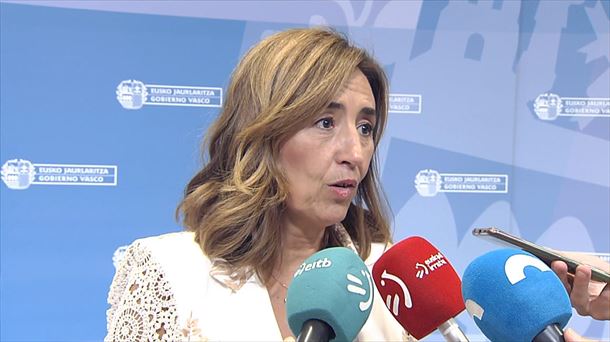The use of pesticides must be reduced. How many? There is no consensus on this within the European Union (EU). The Greens want to allow pesticides allowed in organic farming. When it comes to pest reduction, worlds collide, the fronts are hardened. It is quite possible that the demand will be delayed.
The match is on – and it will be a tough fight, that’s for sure. On the frontline: Austrian MPs. The different interests are already clear in the diction: while some talk about pesticides, others only talk about pesticides and toxins.
The European Union wants to reduce the use of pesticides in fields, fields, vineyards and the like. So far everyone can agree. The tricky question, however, is by how much. Last summer, the Commission tabled a proposal for a 50% reduction by 2030. The value should be based on the average quantity sold in 2015, 2016 and 2017.
The green MEP Sarah Wiener, so-called rapporteur on this subject, does not go far enough in Brussels. In the report presented to the Environment Committee on Thursday, she calls for an 80 percent reduction in particularly dangerous pesticides. In addition, a ban on pesticides in cities, residential areas and public parks, more responsibility for industry (which has to pay for damage, such as expensive cleaning of drinking water, according to the polluter pays principle) and an EU-wide, high-risk pesticide tax (here is the still rather vague formula: the more toxic, the more expensive).
The People’s Party is descending into total alarmism
Even before the report by renowned TV chef Sarah Wiener, who has been representing the Greens in the EU Parliament since 2019, was even officially presented, the European People’s Party launched an attack on the Greens. The conservatives dig deep into the alarm box and sketch one absolute horror scenario after another. If Sarah Wiener’s suggestions were to be implemented, the ÖVP argues, this would jeopardize food security, domestic potato production would more or less come to a standstill, wine could no longer be grown in the idyllic Wachau, the region would lose its UNESCO World Heritage Site. status.
Nature needs help against vermin
All this is undoubtedly applied too thickly, but it is clear that pesticides are usually indispensable to protect the crop. Powdery mildew, phylloxera, weeds – nature needs support for this. And they are also available in organic farming – with specially approved preparations that are not of chemical origin. According to Sarah Wiener’s ideas, these funds should be allowed in the future in sensitive areas such as NATURA 2000 areas. However, an informal document from the European Commission provides for a complete ban on the use of pesticides in sensitive areas.
Parliament: Difficulty looking for majorities
The situation is confused, unity is a foreign word in this matter. Neither between the political groups in the EU parliament, nor in the committees. The parties are now trying to find a majority for their position. Sarah Wiener does not want to let the ÖVP argument stand that her plan endangers food safety: 20 to 30 percent of food ends up in the garbage, part in manger bowls, another part in the tank. There is no danger that there will not be enough for the plates, says the cook. The People’s Party objects to the reduction targets of the Commission and the Greens, but does not want to express any value itself.
According to Alexander Bernhuber, the European People’s Party’s chief negotiator for this legislative project, it is not possible to quantify that because different resources and different amounts are needed. In addition, regions with special needs must be taken into account. In any case, he also sees great skepticism about Wiener’s plan among other factions.
The important topic may be on hold for a long time
However, the EU Parliament is just one of the construction sites on the road to a reduction in pesticides. After all, negotiations are needed between Parliament, the Commission and the EU Council. However, some countries are in no hurry to come up with a solution. The signs point to procrastinate and procrastinate. The question is whether a decision will be made in this legislature. If not, it means: Back to the beginning. And the topic, which is so important, could be on hold for a long time.
Source: Krone
I am Ida Scott, a journalist and content author with a passion for uncovering the truth. I have been writing professionally for Today Times Live since 2020 and specialize in political news. My career began when I was just 17; I had already developed a knack for research and an eye for detail which made me stand out from my peers.



